If you are gluten-free or have any other allergy or dietary restriction, it is important to have strategies for navigating the holidays so that you can attend the celebrations stress-free and, hopefully, enjoy them too!
Here are some practical tips for coping with holiday events:
There’s nothing worse than going to a dinner and having the host prepare an entire meal that you cannot eat. Make the host aware of your dietary restrictions and you might be pleasantly surprised by the effort that he or she goes through to accommodate you. Gluten-free diets and food allergies are becoming more common and people are more knowledgeable about special diets, so give your host a chance!
2. OFFER TO BRING A DISH
The easiest and most sure-fire way to make sure there is something you can eat at a party is to bring a dish. Whether you purchase something safe or make it yourself, you will be guaranteed not to starve. If it’s desserts you miss most, then bring treats. If bread is what you need, then bring dinner rolls or cornbread. There are many available gluten-free prepared foods and baking mixes that will help to fulfill your cravings.
3. HELP PLAN THE MEAL
Who doesn’t need help with the holiday meal? If the host is a family member or close friend, offer to help plan the menu and even assign dishes to guests if appropriate. That way, you can have some control over 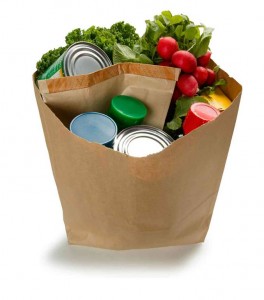 what dishes are going to be prepared, or at least you will know ahead of time what the meal will entail.
what dishes are going to be prepared, or at least you will know ahead of time what the meal will entail.
4. DO THE GROCERY SHOPPING
If you have been living gluten-free or with food allergies for a while, you know your safe foods, which means grocery shopping for your foods is easier for you than for anyone else. So if you are visiting relatives or friends and plan to make a dish while you are there, make time to go to the store. It will take the pressure off of your host and give you assurance that your ingredients are safe.
5. OFFER SUGGESTIONS
What not to do: call your host and say “Oh, by the way, I’m gluten-free. Thanks!” click. Don’t expect your host to know what gluten-free means or how to avoid another ingredient that you are sensitive to. What you can do is offer suggestions for foods that you know are safe. For example, if the host is 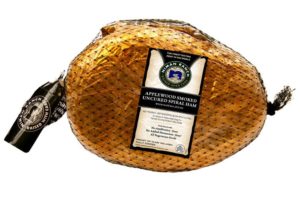 serving ham, you can let them know some of the brands that are gluten-free: Costco spiral ham, Niman Ranch, Honeybaked Ham (they recently changed their honey glaze recipe to be gluten-free). You could suggest a ready-made gluten-free bread to use for their traditional stuffing recipe and some safe brands of broth (Pacific, Imagine, Kitchen Basics are some).
serving ham, you can let them know some of the brands that are gluten-free: Costco spiral ham, Niman Ranch, Honeybaked Ham (they recently changed their honey glaze recipe to be gluten-free). You could suggest a ready-made gluten-free bread to use for their traditional stuffing recipe and some safe brands of broth (Pacific, Imagine, Kitchen Basics are some).
6. GET IN THE KITCHEN
Holidays hosts will often accept help in kitchen, especially if they get overwhelmed when it gets closer to mealtime and they haven’t finished preparing everything. While you are in the kitchen, you can check ingredients in flavoring packets or canned soups – stuff that goes into those “old favorite†recipes. Maybe you can even intervene in the gravy-making and use cornstarch or arrowroot starch instead of wheat flour to thicken. If you are not a chef, at least you can get an idea of what you can and cannot eat.
7. ASK QUESTIONS
You’re not going to be able to guess what’s in a dish just by looking at it, so you will need to ask questions about ingredients and how the food was prepared. When in doubt, leave it out.
Have you ever looked through other people’s garbage or recycling bins? Sometimes you just have to know… what brand of chicken broth did they use? Are these crackers gluten-free? What ingredients are in the seasoning packet used in the dip?
9. EAT BEFORE YOU GO
You never want to show up to an event starving if you aren’t sure what’s going to be served. Have some food in you before you arrive. An empty stomach can lead to heightened emotions and if you are drinking alcohol, can lead to something worse. Put a buffer in your belly just in case.
10. BRING EMERGENCY FOOD
It’s always a good idea to stash a snack — in your purse, in your car, even a pocket of a jacket. Rice crackers, nuts or a bar are easy to transport and nibble on in a food emergency.
If you have so many food restrictions that it would nearly impossible for your host to know what to feed you, take the pressure off and just establish that you will be bringing your own food. You will be safe and won’t starve and your host, though she may feel bad, will most likely be relieved.
12. BE PATIENT
You might fully understand your diet and the reasons you are doing it, but others might not get it. Don’t expect your friends and relatives to understand your special diet right away, especially if you rarely see them. There is a learning curve when it comes to eliminating gluten, or dairy, or anything else. You may feel frustrated, but they may be just as frustrated as you.
Let’s face it — we all have family members we think are in denial and need to eliminate gluten and/or something from their diet. But while they are eating Aunt Susie’s famous pumpkin pie at the Thanksgiving table is not the time to get on your soapbox and let them know how eating gluten-free will change their lives! Talking about reflux, migraines and bloating are probably not be what people were looking forward to when they arrived at the holiday gathering. So hold off on your sermon — maybe after the holidays when they are feeling ill (from all that holiday food) would be a good time to broach the subject.
Do you have tips to share? Feel free to provide them in the comments section!
Need a Pep Talk?


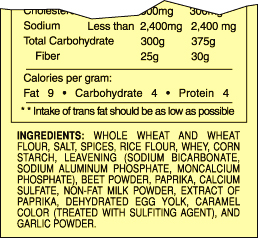
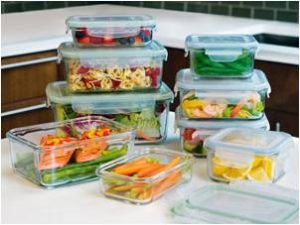



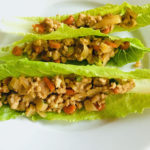



Leave a Reply